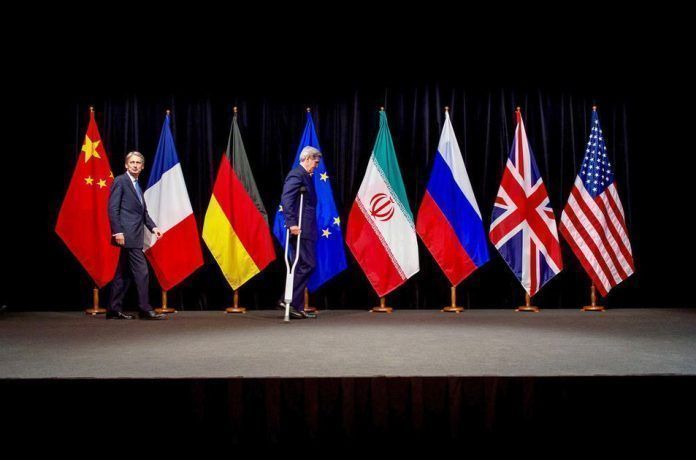
LONDON, June 28 (Reuters) – Iran said Friday’s meeting in Vienna between the remaining signatories of the nuclear deal was the “last chance” to save the accord after the U.S. withdrawal last year and warned Tehran would not accept “artificial” solutions to U.S. sanctions.
Iran is threatening to exceed the maximum amount of enriched uranium allowed it by the deal, in retaliation for crippling U.S. economic sanctions imposed in the past year.
It is just days away from that limit, diplomats say, and going over it could unravel the accord.
Senior officials from Iran and the deal’s remaining parties will meet with the aim of saving the pact. But with European powers limited in their ability to shield Iran‘s economy from U.S. sanctions, it is unclear what they can do to provide the large economic windfall Tehran wants.
On Friday, Iran‘s Fars news agency quoted foreign ministry spokesman Abbas Mousavi as saying, “I think this meeting can be the last chance for the remaining parties…to gather and see how they can meet their commitments towards Iran.”
Mousavi said that despite supporting Iran‘s stance in several statements, the remaining signatories – Britain, China, France, Germany and Russia – had failed to take any action.
Fars also quoted Deputy Foreign Minister Abbas Araqchi, who is in Vienna, as saying Iran had run out of “strategic patience”, and adding, “Iran will not tolerate remaining unilaterally committed to the nuclear deal.”
He said he hoped the Vienna meeting could lead to “tangible” action, the agency said.
The European powers have set up a mechanism for barter trade called Instex, in an effort to protect at least some of Iran’s economy from the U.S. sanctions.
Instex would net out amounts at either end but is not yet operational and diplomats have said it will only be able to handle small volumes of items such as medicine, not the large oil sales Iran is seeking.
“We should see how much money can be transferred via Instex,” Mousavi said. “If it’s an artificial mechanism, Iran will surely not accept it.”
Trade between Germany and Iran has collapsed under the impact of U.S. sanctions, data published by Funke newspapers showed, supporting Iran‘s assertion that Europe is failing to help preserve the nuclear non-proliferation deal it signed.
French President Emmanuel Macron said on Thursday he would try to convince U.S. President Donald Trump to suspend some sanctions on Iran to allow for negotiations to help defuse the crisis.
(Reporting by Bozorgmehr Sharafedin)

